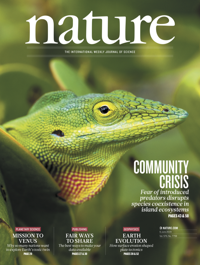|
The paper led by Brian Gill on individual-level tracking of elephant diets -- Foraging History of Individual Elephants Using DNA Metabarcoding -- was just published by Royal Society Open Science. We are very proud of this paper, which revisits a set of classic studies on seasonal diet switching by elephants using stable isotopes in hair that were led by coauthors Thure Cerling and George Wittemeyer. The work was made possible with support in the field from Save the Elephants and with the botanical expertise of coauthor Paul Musili from the National Museums of Kenya.
The paper was accompanied by a great summary by Corrie Pikul and featured on the Brown University homepage: Similar to Humans, Elephants Vary What they Eat for Dinner. The paper also attracted attention in the media, including interviews on BBC Television and Times Radio. Some nice coverage of the study was also provided by BBC (with hilarious photos), Newsweek, ZME Science, and The Times.
0 Comments
Late last year, Ezequiel participated in the capture of the first two Giant Armadillos from Argentina. The animals were sampled and outfitted with tracking devices to understand more about the health and ecology of their population. This amazing species is very rare, and its global population is listed as Vulnerable and Declining on the Red List of Endangered Species.
An article was published entitled, "Rosenda, la primera tatú carreta monitoreada en el Chaco" Great work, Ezequiel! Bianca Brown was featured as one of seven "exceptional alumni" profiled by the Brown Alumni Magazine in 2021. As quoted below, the article "Emerging Victorious" features seven of the many exemplary students who thrived and graduated despite the pandemic. It's a very fitting and well deserved highlight for Bianca, who we are incredibly proud to have had as the first PhD to fledge from the lab. Congratulations, Bianca, we can't wait to see all the good you do in your life and career!
A pair of recent papers from the lab were highlighted for the creative use of DNA metabarcoding to solve problems and ask new questions in fields that span ecology and biomedical science.
1. Our recent paper documenting variation in diet-microbiome linkages in African megafauna was highlighted on the cover of PNAS, Brown University's news, The Division of Biomedicine's 'Kudos' memo, and in the media. This open access paper reflects the results of a long-term collaboration with Rob Pringle from Princeton, Paul Musili from the National Museums of Kenya, a creative honors thesis by Julianna Hsing, and the microbiome-bioinformatics chops of current grad student Bianca Brown. 2. Our recent paper in mSystems creatively translated the DNA metabarcoding approaches that we've been using for wildlife research into a biomedical context to evaluate the plant component of human diets. Using DNA-based evidence of human diet composition could be highly complementary to the current standard of asking human subjects to maintain diet logs in research on human health and nutrition. The paper was highlighted as Editor's pick in the area of Clinical Science and Epidemiology by the journal, as well as in a thoughtful commentary by Frank Maixner, who further highlighted the connections between this work and the fields of archaeology and ancient DNA. The paper was co-led by Aspen Reese based on samples from a prior experimental study investigating the influences of diet interventions on human gut microbiomes, which was led by Lawrence David.
Proud to contribute to a paper by Adam Pellegrini and coauthors that was just published in Ecology Letters: "Convergence of bark investment according to fire and climate structures ecosystem vulnerability to future change" (PDF).
Our work finds that some ecosystems contain tree species that are well adapted to the predicted changes in global fire regimes due to climate change, while others are composed of trees that may be particularly vulnerable. The paper was highlighted on Princeton's homepage and in Nature News! |
Archives
June 2024
Categories
All
|



 RSS Feed
RSS Feed
